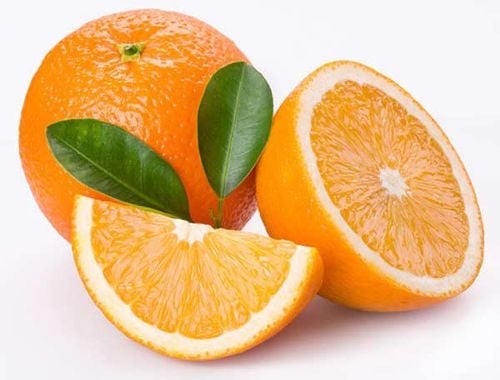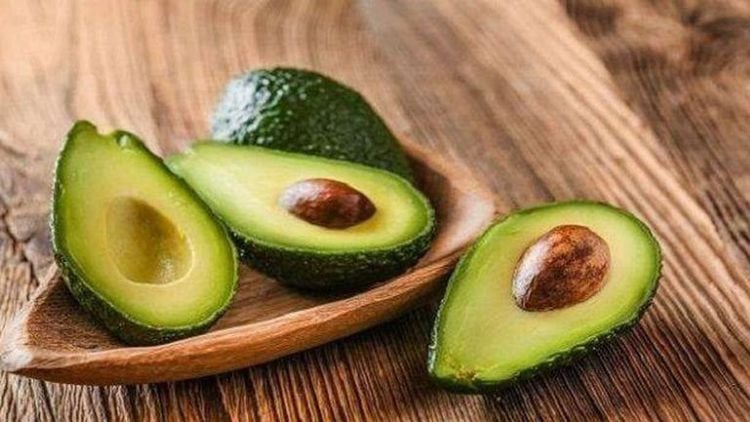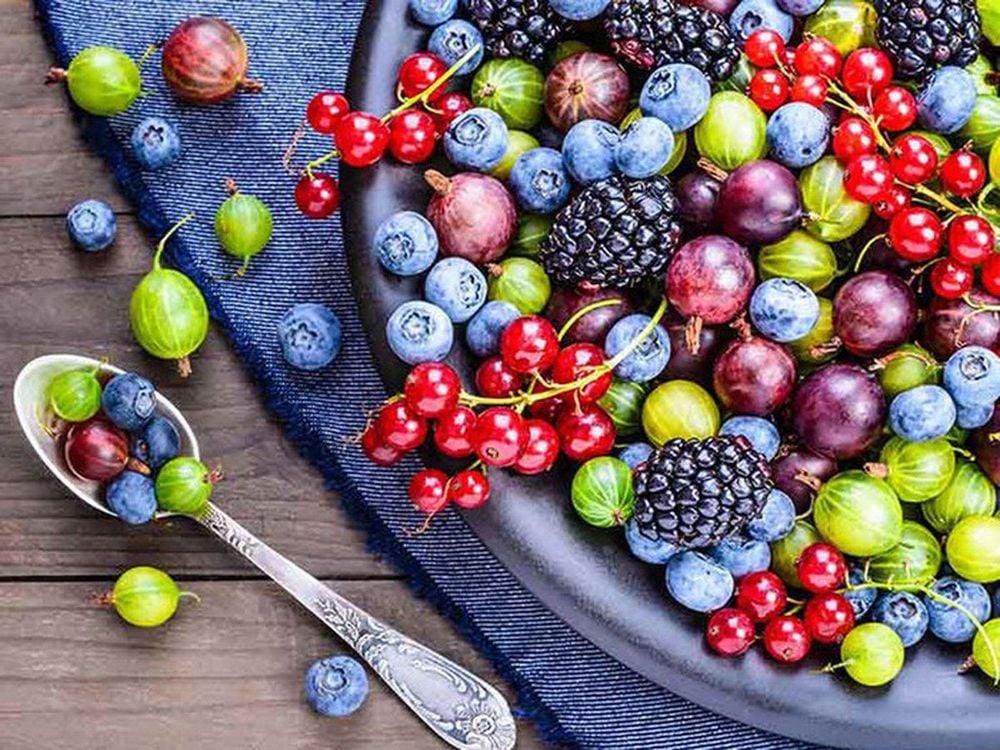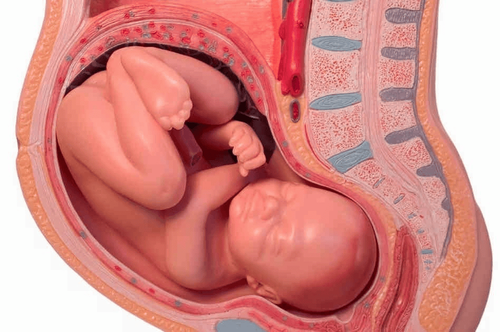During pregnancy, your fetus relies on you to supply the necessary nutrients for its development. It’s essential to make healthy food choices for both you and your baby. A balanced diet rich in fruits and vegetables is crucial, as these nutrient-dense foods provide the vitamins and minerals needed to support your health and the health of your baby.
1. Benefits of Eating Fruit During Pregnancy
During pregnancy, it's essential to choose nutritious foods and avoid those that are high in empty calories. Regularly consuming junk food can lead to your baby developing a preference for fat and sugar later in life.
Fruits and vegetables are part of a food group rich in a variety of nutrients. Including a diverse range of foods in your diet will help ensure that both you and your baby receive the necessary vitamins, minerals, and fiber.
Additionally, eating fruits and vegetables can help prevent constipation, which is a common issue during pregnancy. So, be sure to visit the produce aisle and you won’t regret it.
2. 7 nutritious fruits you should eat during pregnancy
During pregnancy, it's common to have cravings for sweet foods. Instead of indulging in cake or candy bars, consider satisfying your sweet tooth with fruit. So what fruit should pregnant women eat?
Fruit will provide sweetness to reduce the sweet cravings you're craving while also providing the extra nutrients you need. Enjoy these fruits as part of a healthy pregnancy diet in salads, smoothies, yogurt, or as an anytime snack. Pregnant women are always interested in the question: What fruits are good for pregnant women to eat? What fruit is good to eat when pregnant?
2.1. Orange
Oranges help you stay hydrated. Oranges are also a great source of folate or folic acid. Folate is a B vitamin that is important in helping prevent brain and spinal cord defects, also known as neural tube defects.
The American College of Obstetricians and Gynecologists (ACOG) recommends taking 400 micrograms (mcg) of folic acid daily before you start trying for a baby, and then at least 600 mcg daily while pregnant.
Oranges are also a reliable source of vitamin C. Vitamin C belongs to the group of antioxidants that help prevent cell damage. Vitamin C also helps your body absorb iron most effectively.
Additionally, it doesn't hurt that these little vitamin-packed oranges are delicious.

2.2. Mango
Mangoes are an excellent source of vitamin C, with one cup providing about 100% of the daily recommended intake.
They are also rich in vitamin A. A deficiency of vitamin A at birth can lead to lower immunity and an increased risk of complications, such as diarrhea and respiratory infections.
While it is rare, it is possible to consume too much vitamin A or exceed the recommended intake for pregnant women. According to a research review, mangoes can be a valuable addition to your diet during pregnancy. However, it's best to enjoy mangoes in moderation alongside other fruits.
2.3. Avocado
The nutritional composition of avocados has more folate than other fruits. They serve as an excellent source of various vitamins, including both water-soluble and fat-soluble vitamins: Vitamin C, B vitamins, vitamin K, fiber, choline, magnesium, and potassium.
Some women report that avocados help reduce nausea, which may be attributed to their potassium and magnesium content. Potassium is particularly beneficial for alleviating leg cramps, a common pregnancy symptom that often occurs due to low levels of potassium and magnesium.
Choline is another important nutrient found in avocados, essential for the development of the baby's brain and nervous system. A deficiency in choline can lead to neural tube defects and lifelong memory issues.

2.4. Lemon
In one study, pregnant people reported some success in using lemon or lemon scent to help reduce pregnancy-related nausea.
Lemon also contains a lot of vitamin C. Lemon will help stimulate the digestive system to reduce constipation. However, you should consider adding some to your water or tea or using them in this Mediterranean lemon chicken recipe.
2.5. Bananas
Bananas are a great source of potassium, making them a valuable addition to meals for pregnant women. They also contain important nutrients, including vitamin B6, vitamin C, and fiber.
During pregnancy, constipation is a common issue that can arise from several factors, such as uterine pressure on the intestines, stress, a low-fiber diet, and the iron found in prenatal vitamins.
Incorporating bananas, which are high in fiber, may help alleviate constipation. Additionally, some studies suggest that vitamin B6 can be beneficial in reducing nausea and vomiting during early pregnancy.
2.6. Berries
Berries, including blueberries, raspberries, strawberries, and goji berries, are packed with essential nutrients such as carbohydrates, vitamin C, fiber, and folate.
They also contain beneficial phytonutrients like flavonoids and anthocyanins.
Carbohydrates provide the energy your body needs, and this nutrient easily passes through the placenta to nourish your baby.
It’s important to choose nutrient-rich complex carbohydrates, like berries, instead of simple, processed carbohydrates found in doughnuts, cakes, and cookies.
You should consider making a smoothie that combines both bananas and berries for a vitamin-packed meal or snack.

2.7. Apple
Apples are rich in fiber and vitamin C. They also contain vitamin A, potassium, and pectin. Pectin is a prebiotic that helps nourish the beneficial bacteria in your gut.
To maximize their nutritional benefits, be sure to eat the peel, after rinsing it thoroughly with water.
Apples can be enjoyed on their own or incorporated into a variety of recipes.
3. Amount of Fruit to Eat During Pregnancy
Health experts often recommend that during pregnancy, you should consume two to four servings of fruit and four to five servings of vegetables each day.
In general, a serving of fruit is defined as:
- One piece of fruit (approximately the size of a tennis ball)
- One cup of cut fruit
A serving of vegetables is defined as:
- Half a cup of raw or cooked vegetables
- Half a cup of vegetable juice
- One cup of leafy green vegetables
When it comes to 100% fruit juice, if it has been pasteurized, it is safe to drink. However, in this way, you may miss out on some nutrients typically found in whole fruit. Nonetheless, consuming pasteurized juice ensures safety for both you and your baby.
Dried fruits are also an option for you during this period because this type of food can be used to get nutrients in an instant form. Just be aware that these foods may contain more calories and sugar than their fresh counterparts.
4. Why is hydration important during pregnancy?
Dehydration occurs when you lose more fluid than you take in. This condition is serious under any circumstances, but it is particularly important to address during pregnancy. Water plays a crucial role in forming the placenta and amniotic sac, and it also supports your child's development.
If you are experiencing morning sickness, your risk of dehydration increases. To help prevent dehydration, aim to drink 8 to 12 glasses of water each day. While fruits contain some water, they do not provide enough hydration to meet your body’s needs on their own, so it's essential to complement them with adequate water intake.
5. Tips for Safely Choosing Fruit
When selecting fruit, it’s best to choose organic options that haven't been treated with pesticides or synthetic fertilizers. However, consuming non-organic fruit is still better than not eating fruit at all. To minimize the risk of pesticide residue or bacteria on fruits, follow these tips:
- Wash fruit thoroughly, even if it has been pre-washed.
- Remove any bruised areas, as these can be hiding spots for bacteria.
- Only consume fruit juice that has been pasteurized or boiled.
- Avoid eating melon until the skin has been removed or right after it has been cut.
- Store fresh fruit in the refrigerator, away from raw foods.
Consuming fruit during pregnancy is essential for maintaining your health and ensuring your baby is prepared for life outside the womb. Fresh, frozen, and canned fruits are all excellent choices for pregnant women. However, when opting for canned or frozen fruits, make sure there are no added sugars. If you have any questions or concerns about your dietary plan during pregnancy, don’t hesitate to reach out to your doctor.
To support a healthy body and the proper development of your fetus, it’s crucial for expectant mothers to pay close attention to their nutrition and avoid foods that could negatively impact the health of both mother and baby.
Please dial HOTLINE for more information or register for an appointment HERE. Download MyVinmec app to make appointments faster and to manage your bookings easily.













